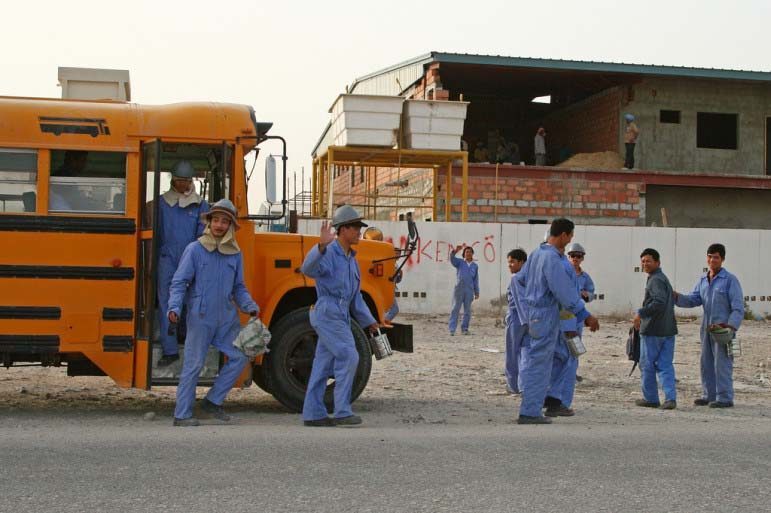
An in-depth report on existing labor practices in Qatar has been submitted to the government by international law firm DLA Piper, QNA reports.
The firm was tasked with looking into the working and living conditions of Qatar’s blue-collar workforce following intense media coverage of various abuses here. It also is supposed to provide recommendations on how existing practices can be improved.
QNA reports that the report will only be publicly released after a thorough review of the findings and an evaluation of the feasibility of recommendations made. It continues:
“The welfare of workers in the State of Qatar is a matter of utmost importance. We will respond to the recommendations and release the report to the public after our review in alignment with the ongoing steps being taken by the State to improve the labour legislation and conditions of workers.”
Conference on rights
The announcement about DLA Piper’s report came yesterday, as human rights advocates and government officials gathered to discuss the state of labor affairs in Qatar.
During the “Qatar Labor Rights Protection” summit, the Minister of Labour and Social Affairs did not make any big announcements about changes to the kafala (sponsorship) system, despite widespread expectations about a major overhaul.
It is possible that any changes the government has pledged are forthcoming could be announced when the DLA Piper findings are made public.
Meanwhile, officials yesterday did discuss several steps they are taking to improve labor conditions in Qatar, including:
- The implementation of a wage protection system, in which companies who don’t pay their employees by direct deposit could face fines or lose their ability to recruit more workers;
- The construction of two “labor cities” to house more than 100,000 workers in the Industrial Area. There also plans afoot to float tenders to build five accommodations to house some 120,000 workers; and the
- Hiring of more labor inspectors and interpreters who can better communicate with many of Qatar’s blue-collar employees, who often do not speak English or Arabic.
The timeline for many of these initiatives remains unclear.
The one major project underway to house workers in the Industrial Area, the $1 billion Barwa Al Baraha development, is four years behind schedule.
The “Worker’s City” project was supposed to be completed in mid-2010, and house some 50,000 workers. It is expected to begin receiving tenants sometime this year.
Amnesty Interational, whose representatives spoke at the conference, welcomed Qatar’s willingness to discuss labor issues, but reiterated calls on the country to scrap its exit permit system.
Amnesty's Audrey Gaughran: exit permit is a blatant violation of human rights.
— James Lynch (@jpmlynch) May 1, 2014
The rights group, which has recently published separate reports about workers in the construction industry and domestic employees here, also questioned the detention of expats who “run away” from their employers, especially without legal justification for punishing them.
MOI official confirms there is no such thing as "absconding" under Qatari law.
— James Lynch (@jpmlynch) May 1, 2014
Thoughts?







